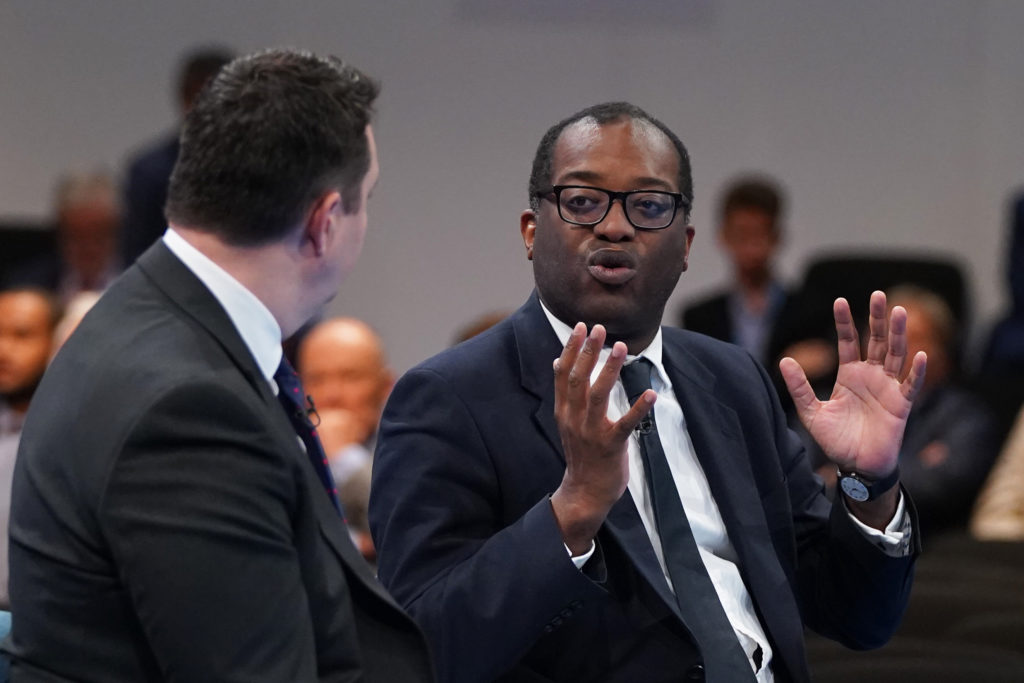The new chancellor Kwasi Kwarteng has confirmed that the government has cancelled plans to abolish the 45p rate of income tax on those earning over £150,000.
Speaking on the BBC Radio 4 ‘Today’ programme this morning, Mr Kwarteng said, “On the 45p rate, it is very simple, we talked to a lot of people around the country, we talked to lots of MP colleagues, our voters, our constituents, crucially people in the country, and I felt that the 45p rate was a huge distraction on what was a very strong set of measures”.
Asked whether he owed people an apology for his original plans, Kwarteng said, “There is humility and contrition in that, and I am prepared to own it”.
Mr Kwarteng’s comments come as reports suggested that as many as 50 Conservative MPs may have been prepared to oppose the government’s proposals in a Commons vote.


The former Cabinet minister, Grant Shapps had yesterday suggested the government would not get the proposed measure through parliament, warning the government not to have ‘tin ear’s on voters concerns.
However Mr Kwarteng played down the Commons threat as a factor in his U-Turn. He said, “It is not a question of getting it through, it is not about parliamentary games or votes in the House of Commons, it is about listening to constituents who express very strong views about this”.
Only yesterday, the prime minister told the BBC she was absolutely committed to the abolition of the 45p rate as part of a package to make the tax system “simpler” and boost growth.
Speaking earlier on BBC TV, Mr Kwarteng signalled that he hoped the U-Turn would draw a line under the current controversy saying, “We have made the right decision and we can now move forward”. On both BBC TV and Radio 4, he claimed that he had not considered resigning in light of the policy U-Turn.
Although plans for the 45p rate have attracted significant media and public attention from Mr Kwarteng’s mini budget, they have not been the only source of controversy.
Commenting on some of the other aspects emanating from his plan, Mr Kwarteng refused to be drawn on public spending. With higher inflation putting pressure on the pre-allocated government budgets, Mr Kwarteng indicated that there would not be extra support for government departments this year:
“We are sticking to the comprehensive spending review for 2021, and we are very committed to that. And that is all I am prepared to say about spending”.
Attempting to play down suggestions that pressure on UK interest rates was linked to his financial statement last week, Mr Kwarteng was keen to stress the role of the American central bank in influencing the direction of markets:
“High interest rates have been driven by the Federal Reserve all year. The Federal Reserve has been ahead of every other central bank in terms of lifting interest rates. What that has meant is that there has been a strong dollar, and also other banks are going to have to put up other interest rates to follow”.
“What happened last week is that we had strong moves from the Fed, we had a strong sell off of US Treasury 10 year money, and that was a strong direction in terms of interest rates. The dollar at the beginning of last week had a 20 year high against the euro, it had a 50 year high against the yen, and the Bank of Japan had to intervene”.
Today marks the second day of the Conservative conference in Birmingham, where Kwarteng is due to speak later this afternoon.
Following the government’s U-Turn, the pound jumped on the news, rising by more than a cent against the dollar to $1.1263.

